A fellow of the American Academy of Arts and Sciences, Emanuel Ax has been described as “a quiet, self-effacing character and a genuinely poetic musician, the antithesis of the glitz that characterises some of his more populist colleagues.” A multiple Grammy Award winner for both his solo and chamber music recordings, Ax has been inducted into the American Classical Music Hall of Fame in 2012.
Emanuel Ax Performs Schubert/Liszt’s “Ständchen”
From Ukraine to Canada
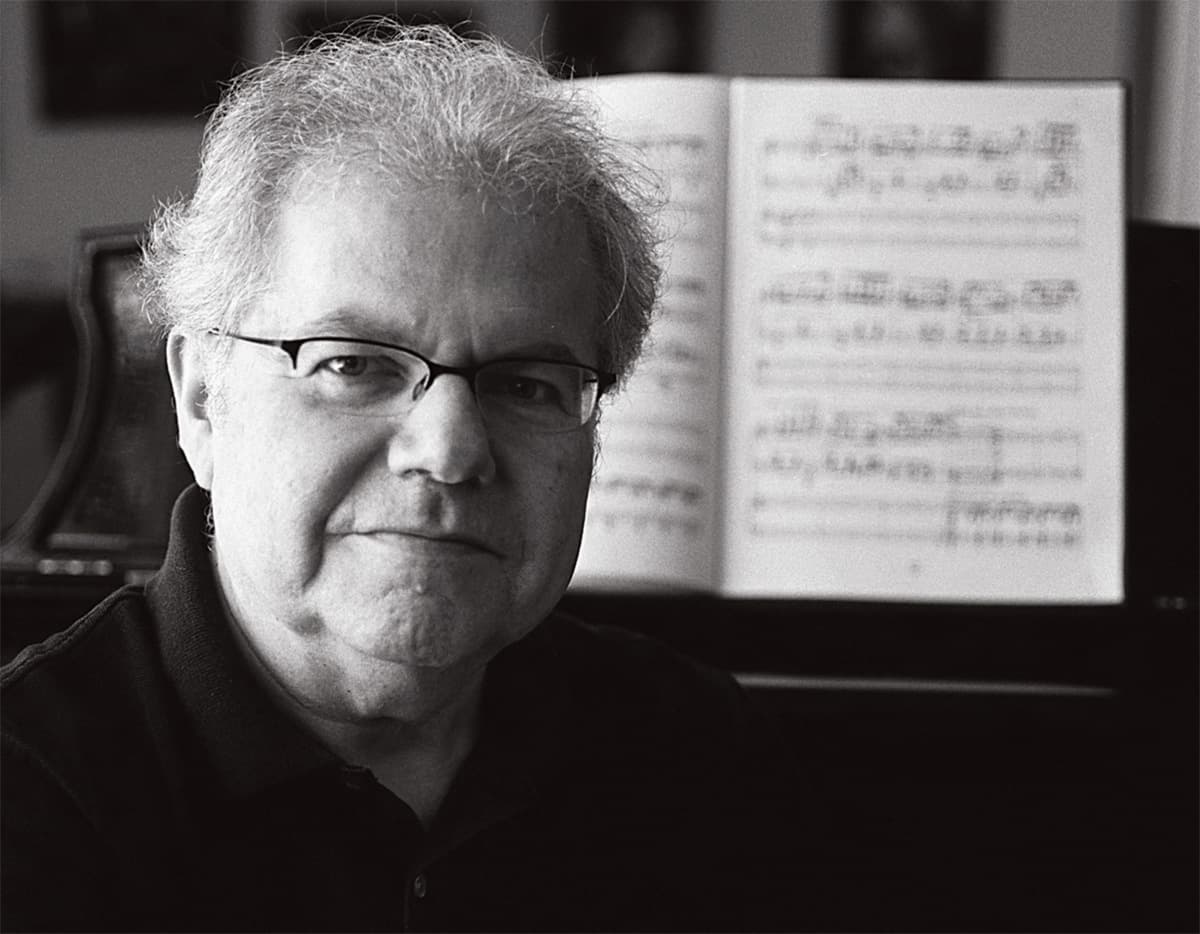
Emanuel Ax
Emanuel was born into a Polish-Jewish family on 8 June 1949 in Lviv, Ukraine. Both Joachim and Hellen Ax were Nazi concentration camp survivors, and Emanuel remembers, “they both lost their families. My father went into hiding and my mother was lucky enough, somehow, just to get by.” Joachim Ax was a music lover and fine amateur singer, so it came as no surprise that Emanuel started to show an interest in music at a young age.
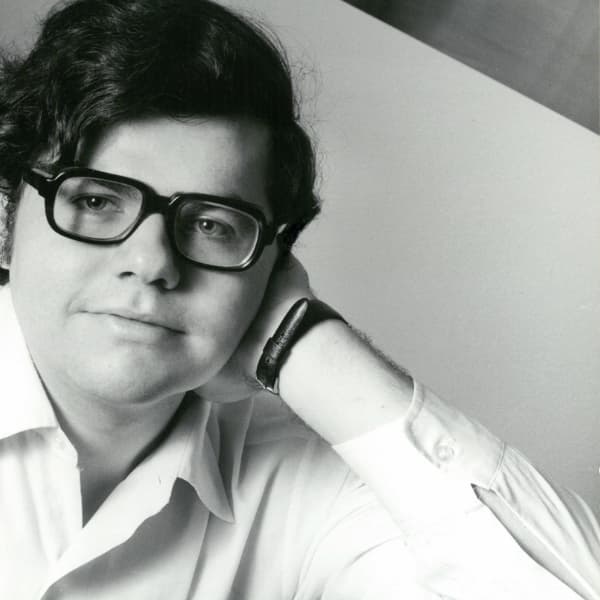
The young Emanuel Ax, photo by Christian Steiner, 1973
Emanuel never considered himself a prodigy in any sense, but “I was extremely lucky at the beginning of my life as a musician to always be with teachers who were incredibly decent people. When I was seven, I studied with someone in Lviv, Ukraine who was just a wonderful woman. When I was nine, I guess we moved to Warsaw. Same thing.” His parents were determined to leave Poland, however, and the family moved to Winnipeg, Canada, when Ax was 10.
Felix Mendelssohn: Piano Trio No. 1 in D Minor, Op. 49, MWV Q29 (Itzhak Perlman, violin; Yo-Yo Ma, cello; Emanuel Ax, piano)
Studying at the Juilliard
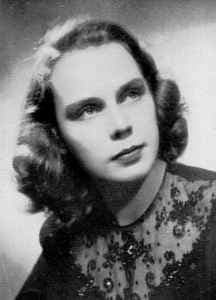
Jane Carlson
After continuing his musical education in Canada for about a year and a half, the family decided to move to New York City. “I was about 11,” Ax recalls, “and I knew a little bit about the West, having come from Poland. But New York was, you know, for an eleven-year-old kid, a bit of a shock, but like all kids at that age, I adapted very quickly. I was a New Yorker from a very early age.” Ax immediately auditioned for Juilliard, for the so-called preparatory division.
Being in New York, Juilliard was clearly the place to go, and once accepted, he studied “with a really wonderful, wonderful lady named Jane Carlson. She was just the most kind person imaginable. She genuinely enjoyed teaching children and, at the same time, encouraged them and let them have fun.” For Ax, “that’s the hardest thing. That combination, I think the rarest and most difficult talent to find.” Ax just loved Juilliard because he knew what to expect. “I was going to be a very small fish in a very large pond.”
Emanuel Ax Performs Beethoven’s Piano Concerto No. 4 in G Major, Op. 58
Inspirations
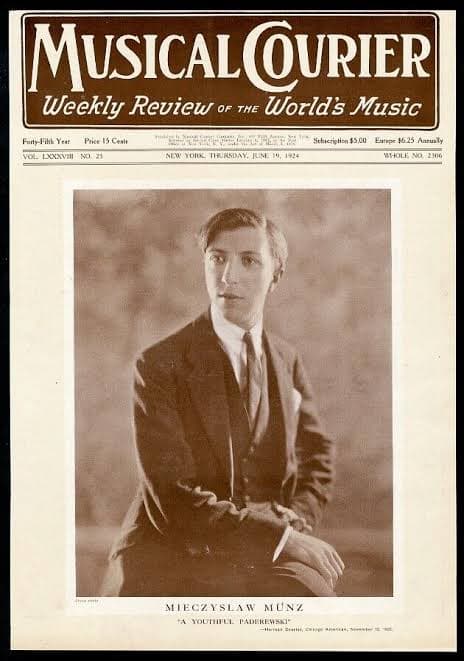
Mieczysław Munz
Around the age of 14 or 15, Ax realised that he wanted to become a professional musician. He met Garrick Ohlsson, who was almost the same age, and he was, for the first time, exposed to a truly precocious talent as Ohlsson was playing the most difficult pieces already. “He was playing everything that was just impossible for me yet. So I think he was a great inspiration to me because I realized at that point that if I was going to make this my profession, my career, my life, I better start practicing.”
Ax found it very easy to make friends at Juilliard. “If you’re passionate about music,” he remembers, “you will find hundreds of people just as passionate, gifted, bright with different points of view. It’s tremendously exciting. In fact, most of my lasting friendships and my marriage date back to Juilliard.” Ax met Yo-Yo Ma in the Juilliard cafeteria “because we were both goofing off from something. We became friends long before we played together.”
Franz Schubert: Arpeggione Sonata in A Minor, D. 821 (arr. for clarinet and piano) (Richard Stoltzman, clarinet; Emanuel Ax, piano)
Studying Under Mieczysław Munz
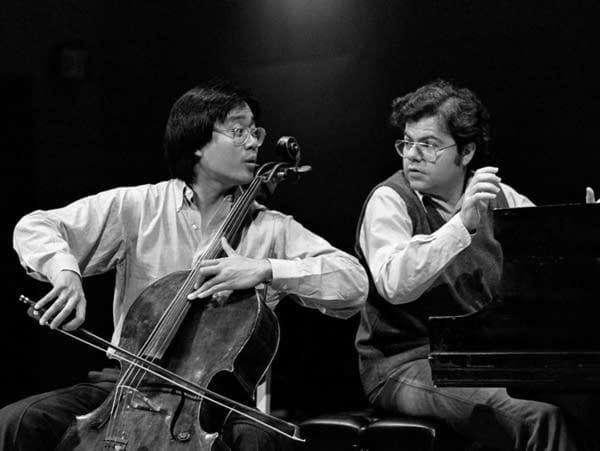
Yo-Yo Ma and Emanuel Ax
According to Ax, Mieczysław Munz “was an extremely wonderful pianist, on the same level with Rachmaninoff and Joseph Levine.” In the early 1940s, he stopped concertising and turned to pedagogy because he developed physical problems with his right hand. Ax auditioned for him around the age of 14, and he doesn’t remember it being scary. “I was a teenager, I wasn’t aware of what was going on. He was quite pleasant and nice, and it was all done in 10 minutes.”
Munz instilled a great sense of discipline in his students. Ax recalls, “That is really what I needed. The idea that you practice every day, you practice with the aim of making things sound correct and good. I needed that very badly.” Munz and Ax seemed the perfect fit, and they got on famously well. “He demanded stuff that I needed to have demanded from me, and I was able to fill out the gaps that he wasn’t interested in, like playing ensemble and chamber music. In a sense, it was like a marriage, I suppose, and I studied with him for 11 years.
For more of the best in classical music, sign up for our E-Newsletter
